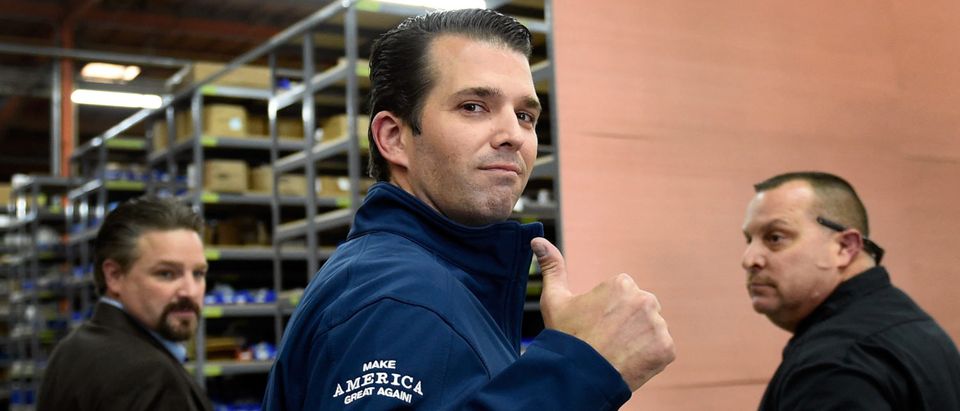By W. Laird Hamberlin
Unfortunately for those who look to stay informed of what happens in the world from day to day, the media as we know it is in a constant race to break a story first and can often sacrifice thorough research and accuracy to do so.
Most recently, this occurred after it was reported that President Trump’s oldest son, Donald Trump Jr, ventured to Mongolia to hunt an argali sheep but was only issued the permit to do so after his successful hunt. The insinuation of impropriety or special treatment spread like wildfire through the media; however, Mongolian authorities have now confirmed that the hunt was entirely lawful and no special treatment was given. In fact, the permit for the hunt was purchased a year ago, in January 2019.
ProPublica, the organization that originally broke the news, riddled their story with half-truths and blatantly untrue statements that serve only to vilify an innocent Donald Trump Jr. and diminish the scientifically proven benefits hunters like him bring to animal conservation. Mongolian officials themselves even confirmed in their statement that news coverage of this non-issue has been “factually inaccurate” and the U.S. Fish and Wildlife Service (USFWS) has found no cause to investigate the hunting trip. The drama surrounding these false allegations ultimately stems from the inability or the unwillingness of those on the left to understand the complexities of the hunting permit issuance processes across different countries and it is the duty of wildlife advocates to correct the public record.
In Mongolia, the government sells licenses directly to the hunting operators, who have agreements with local communities for access to hunting areas. As Mr. Trump purchased his hunt from one such operator and not directly from government officials, the Mongolian government “had no prior knowledge that the license has been sold in January 2019 or that Mr. Trump was involved until the hunting trip was in process.”
A spokesman for Donald Trump Jr. confirmed to ProPublica that he had applied for his hunting license before the trip, and USFWS also responded to demands they investigate the issue, saying “Based on the information we have, there is currently no basis for the U.S. Fish and Wildlife Service to look further into this allegation.”
ProPublica reporters further displayed their ignorance in the story’s headline that stated Mongolian argali sheep are endangered. The International Union for Conservation of Nature (IUCN) has readily available data that shows this statement is incorrect. The IUCN’s Red List is the preeminent global biological conservation authority, and its website shows Mongolian argali sheep listed as “near threatened,” which is two full categories below “endangered.”
ProPublica also mentions that “hunting programs are ineffective and can lead to disruption of local ecosystems.” This claim is particularly false. According to the IUCN’s Red List Assessment from 2008, the argali population is listed as “near threatened” due to a decline in species numbers caused directly by “poaching and competition with livestock” and not legal hunting as controlled by the Mongolian government. Permits for legal hunting are, on the other hand, are determined by the best available species data and limited so that hunting continues to be nondetrimental to the population’s stability in a particular habitat.
Ultimately, the revenue brought to Mongolia by hunters like Donald Trump Jr. is a crucial factor for ongoing conservation efforts for Argali and other species. The Mongolian response to Mr. Trump’s hunt repeatedly emphasizes this point, which calls Argali hunting permits an “important component of… successful conservation of endangered species programs.” The U.S Fish and Wildlife Service during the Obama Administration reached the same conclusions when it conducted a number of “Enhancement Findings” in Mongolia that, over the course of three years, repeatedly found that “fees from sport hunting programs are a major source of revenue for Argali population surveys, conservation efforts, and resource management.” The biologist for USFWS further concluded that “there is no known, direct or indirect, conflict with other programs to enhance the survival of the population” and that hunting, in Mongolia in particular, “is an effective conservation management tool for wildlife.”
These studies reinforce what a U.S district court determined in a 2003 decision. The court was presented with evidence from Safari Club International’s legal counsel that showed when the U.S banned the importation of argali in the mid 1990’s, poaching of the species in Mongolia increased as a direct result of diminished revenues from the sale of hunting permits and the price of the hunts themselves – revenues that produce jobs for locals in extremely remote areas.
The facts aren’t hard to find. They come from U.S wildlife officials, the U.S legal system, Mongolian officials and the IUCN, and can easily be found online. In this case, the wild inaccuracies that serve as the basis for this attack prove that the media’s reporting of Donald Trump Jr.’s hunt is yet another example of news outlets ignoring or willfully misreporting conservation based in science.
W. Laird Hamberlin is the CEO of Safari Club International.


